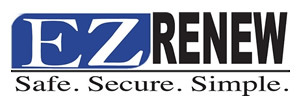NAW PROVIDES UPDATE ON MAJOR HEALTH CARE ISSUES
TO:
NAW Direct Members
FROM:
James A. Anderson, Jr., Vice President-Government Relations
National Association of Wholesaler-Distributors
I thought you would be interested in a summary of developments regarding major health care issues on which NAW is working:
Legislation:
The Affordable Care Act defines a full-time employee (for purposes of the employer mandate) as one who works 30 hours per week. In April, the House of Representatives voted 248 – 179 in favor of legislation to change the ACA definition to one who works 40 hours per week. A similar Senate bill has been introduced. (Despite a determined effort by the employer community to promote this issue, its path forward in the Senate is currently difficult to identify.)
Alongside allies in the Stop the HIT Coalition, NAW is lobbying in support of a bipartisan bill to delay for two years (until 2016) implementation of the “Health Insurance Tax,” the annual fee on health insurance providers enacted in the Affordable Care Act. This “fee” is in effect a tax on fully-insured health insurance plans because it will be passed on to purchasers of those policies in the form of higher premiums. NAW supports full repeal of the health insurance tax, however, full repeal is a difficult sell to Democrats (only eight Democratic House members are cosponsors). The lack of Democratic support and the $140 billion (over 10 years) price tag, combine to make further progress in the 113th Congress unlikely at best. The more manageable 10-year price tag of a two-year delay (+/- $16 billion) couples with broader support on the Democratic side (20 House Democrats are now cosponsors) to make its inclusion in a larger, year-end “must pass” legislative package a brighter prospect.
In cooperation with colleagues in the Affordable Health Care Coalition (AHBC), NAW supported bipartisan legislation to repeal the ACA small group deductible limits. Efforts on behalf of this legislation bore fruit last spring when it was included in the Protecting Access to Medicare Act. The President signed the bill into law on April 1st. Repeal of the small group deductible limits is an important step toward enhancing the affordability of health plans by preserving employer and provider flexibility in plan design.
Regulation:
In February the Treasury Department issued final rules for implementation of the ACA employer mandate, including transition relief delaying until January 1, 2016 enforcement for employers with 50 – 99 employees. Employers with 100 or more full-time employees must offer affordable minimum essential coverage to 70% of full time employees on January 1, 2015; the ACA-mandated threshold of 95% begins on January 1, 2016. Employers utilizing transition relief must certify they did not terminate employees in order to get under the 100-employee threshold.
In March the Internal Revenue Service (IRS) issued final rules implementing ACA employer reporting requirements under Internal Revenue Code (IRC) § 6055 (employer reports to the IRS information concerning the type and period of coverage offered for purposes of administering the ACA’s individual shared responsibility provisions) and IRC §6056 (employer provides information to the IRS about the type of coverage offered to full-time employees for purposes of administering the ACA’s employer mandate; also requires certain reporting to employees for purposes of determining eligibility for ACA premium tax credits). The forms themselves have been issued in draft form. More on the forms from the agency is expected in August, and first reporting is due in February 2016.
In March the Administration extended for an additional two years (i.e., through October 2016) the delay in requiring policies to meet ACA minimum coverage standards. Extension is voluntary for states and insurers.
In May the IRS clarified that employers may not provide employees with a lump sum of money with which to purchase health insurance in the individual market because such “employer payment plans” do not satisfy requirements of the ACA. The penalty for violators: $100 per day per employee.
Litigation:
On July 21st, two federal circuit courts of appeals issued contradictory rulings in cases challenging the validity of the payment of premium subsidies under the ACA to certain low and middle income individuals who purchase health insurance in exchanges run by the federal government. By a 2 – 1 vote in Halbig v. Burwell, a three-judge panel of the U.S. Court of Appeals for the District of Columbia Circuit said “no” to these subsidies, holding that the ACA “plainly makes subsidies available only to people who obtained insurance through exchanges established by states.” (Emphasis added.) A unanimous three-judge panel of the U.S. Court of Appeals for the Fourth Circuit (Richmond, VA), ruling in King v. Burwell, disagreed, ruling the IRS’s rule allowing the subsidies in question is “a permissible exercise of the agency’s discretion.” According to the Justice Department, the payment of the questionable subsidies will continue pending further federal judicial review, and the White House said that Justice would ask the full DC Circuit to rule on the matter. It is likely that the issue will ultimately be decided by the U.S. Supreme Court. The significance of the ultimate outcome of this issue cannot be overstated: the exchanges operating in 36 states are either federally run or facilitated. Without the subsidies, millions of people who would obtain coverage on a federally-run exchange would opt out and be exempt from the ACA’s individual mandate. And because the mandate that large employers (50 and over full time equivalent employees) provide affordable minimum essential coverage to their full-time employees (those who work 30 hours or more per week) is enforced through penalties that are only triggered when a worker obtains coverage in an exchange and with a premium subsidy, the scope of the employer mandate is substantially scaled back.



